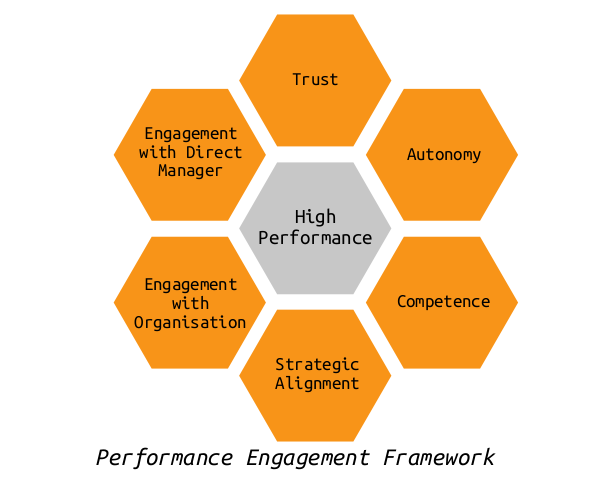Of course, it is costly to find and train replacement staff. Unfortunately, managers often do not consider the importance of a positive work environment.
Do you trust your employees enough to let them get on with their jobs or do you prefer outsourcing to other organisations? In truth, engaging your employees may be the single most cost-effective way to retain staff and improve work performance.

For example, Air New Zealand recently collaborated with unions on high performance engagement (HPE) that allowed worker participation in decision-making (1). In fact, this industrial relations strategy restored trust between Air New Zealand and their employees (2).
Furthermore, Fonterra had already successfully introduced a similar initiative in the late 1990s after industrial disruptions (3).
Not surprisingly, research on The Impact of Employee Engagement on Performance (568 survey respondents) was conducted by Harvard Business Review (HBR) and:
- This study found that 71% of respondents believed employee engagement was very important for overall organisational success
- Furthermore, 72% felt recognition had a significant impact
- Lastly, only 24% said that their organisation was highly engaged (4)
So what is High Performance Engagement (HPE)?
Importantly, high performing teams start at the recruitment phase. Accordingly, the new employee needs to understand what is required in terms of skills, team dynamics and culture-fit. High Performance Engagement (HPE) forms part of an organisation’s culture.
Within their roles, your employees are best equipped to identify and find solutions to work-related challenges. As an employer, this involves regular communication in order to achieve common goals and monitoring measurable outcomes.
By allowing employees to mobilise their knowledge to improve efficiency, a productive workplace with positive relationships is cultivated. A positive environment lends itself to sustainable continuous improvement. It is evident that high engagement leads to high performing and committed staff.
It is important to build a workplace culture where staff and management work together when it comes to decision making. This creates buy-in when challenges arise and lead to improvements that significantly increase productivity.
What are the drivers of engagement within your organisation?
- Do your employees know what is going on in the organisation?
- Are your employees encouraged to participate in the decision-making process?
- What are the perceptions your employees hold towards their jobs?
- How do they perceive your organisations’ values or ethos?
- Do they know what is expected of them?
- What are the feedback processes?
- What growth opportunities do you offer them?
How can RePrac help you?
RePrac identifies issues relevant to your organisation and we develop engagement tools applicable to your organisation. Each organisation is unique and presents different challenges. Our consultants can provide ongoing support to ensure sustainability of your High Engagement High Performance programme.

Specifically, a concern for organisations is the level of distrust employees often feel towards employers. In light of Edelman Trust Data (5), nearly a third of employees distrust their employers.
The RePrac assessment includes:
- Not only the level of trust your employees feel towards your organisation,
- but also the autonomy of employees to control their work situation,
- as well as employees’ perception of management competence,
- and the extent to which employees endeavour to align with the organisations’ strategy,
- the level of employee involvement in company strategies,
- lastly, employees involvement in departmental decisions.
If you find our content interesting connect with us on LinkedIn or follow us on Facebook not to miss out.
References: High Performance Engagement – Employee Engagement Matters
(1. 3.) Scoop, July 2015NZ
(2.) Herald, July 2015
(4.) Harvard Business Review, September 2013
Do you need assistance engaging your workforce?
Contact us at info@reprac.co.nz or follow this link to our contact form.
